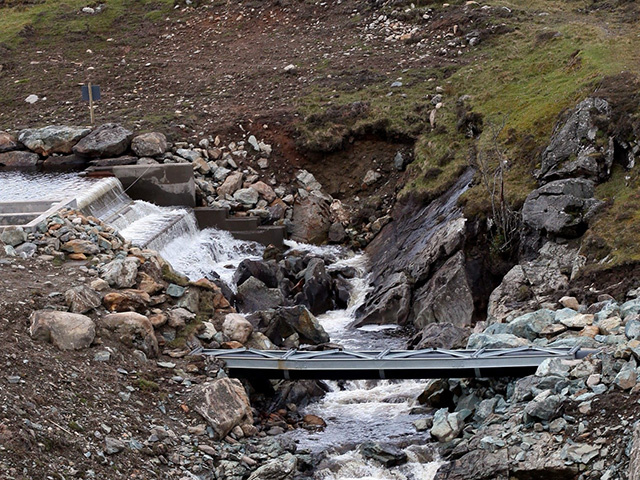
Small scale hydroelectric projects in Scotland face being slowed down or even stopped altogether because of future cuts to financial support, Scottish Renewables has warned.
Cuts planned for feed-in tariff financial support, which pays small energy generators for the energy they export into the grid, are planned for later this year.
However, delays and uncertainty created by the UK government’s review of the feed-in tariff scheme last year has created a backlog of applications for small-scale renewable projects, including a number of hydro schemes, which would see tariffs reduce every year.
Now the industry body wants the planned cuts to be delayed to ensure projects worth up to £23million a year, currently caught in the planning system backlog, are not hit by the changes.
“The hydropower sector understands the need for the UK Government to cut the cost of the FiT scheme, however, the problem is this system is unsuitable for hydro and should be delayed for at least a year,” said Joss Blamire, Senior Policy Manager at Scottish Renewables.
“FiT support cuts are linked to expected, but not actual, build of hydro schemes. Unfortunately, due to uncertainties in financing, grid connections and construction in the hydro sector, projects may be further delayed. This means that projects in future could suffer from cuts in financial support as a result of schemes which were expected to be built, but never were.
“A possible solution to this problem would be to have a one year hiatus of cuts, known as ‘degression’, in order to deal with the backlog of hydro scheme applications caused by the delayed review by DECC, and then introduce annual cuts in financial support based on small-scale hydro schemes which have been built, not on schemes which only gain pre-accreditation.”
The Scottish Environmental Protection Agency said it had received 36 licence applications already this year for hydro developments, which totalled more than 18MW of installed capacity.
Potential investors in hydro schemes have warned that the changes risk discouraging businesses from applying for the scheme.
Adrian Loening, Director of Mór Hydro Ltd, said his firm had invested more than £70,000 in a project at Kinloch Rannoch.
“The threat to our business is very real with as much as £50,000 being lost every year if the 20 per cent cut is applied,” he said.
“We very much welcomed the new FiT banding as it encouraged us to progress this project as rapidly as possible but are now dismayed that there is a significant risk of loss of the benefits that were rightly awarded in the FiT review last year. “
Recommended for you
